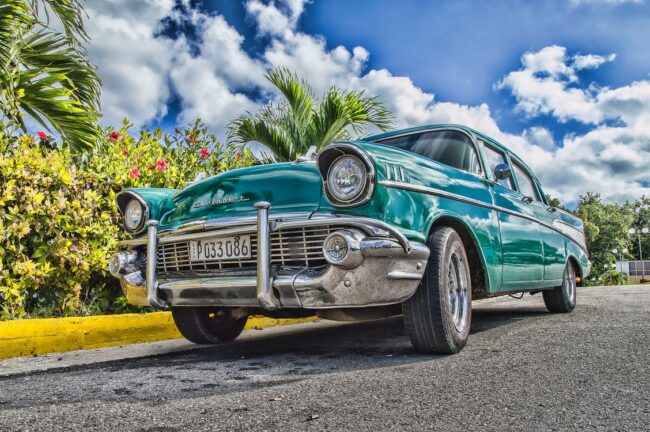
When buying a used car, one question often arises: should I buy a used car with 100k miles? In this article, we will explore the essential factors that warrant careful consideration when contemplating such a purchase. By exploring the impact of mileage, and considering the vehicle’s maintenance history. Evaluating brand and model reliability, understanding your intended usage, and emphasizing the importance of inspections. We aim to provide a comprehensive guide to help you make an informed decision.
Mileage as a Measure of Wear and Tear
Contemporary automobiles are engineered with extended longevity in mind. Remarkable progress in automotive technology and manufacturing has greatly enhanced the robustness of vehicles. As a result, the threshold for considering high mileage has shifted.
One hundred thousand miles is becoming more acceptable: Should I Buy a Used Car with 100k Miles? Although high mileage might still worry certain buyers. It is crucial to acknowledge that a properly cared-for vehicle can frequently deliver commendable performance even when it reaches the 100,000-mile mark.
Regular maintenance matters: A car that has received regular servicing and upkeep is likely to be in better condition, irrespective of mileage. Comprehensive maintenance records can provide valuable insights into the vehicle’s care and potential future costs.

Maintenance and Service History
Requesting records: When considering a used car, requesting and reviewing the vehicle’s maintenance and service history is important. The available records provide valuable insights into the car’s maintenance history and highlight any past concerns that have been addressed.
The importance of regular servicing: A car that has been regularly serviced is more likely to have fewer mechanical issues and a longer lifespan. Look for evidence of oil changes, fluid checks, tire rotations, and other routine maintenance tasks.
Vehicle Brand and Model Reliability
Do your research: Before purchasing any used car, it’s crucial to research the brand and model’s reputation for reliability. Some brands and models are known for their durability and longevity, even at higher mileages. Others may have more frequent issues.
Consumer reports and expert reviews: Consult consumer reports, expert reviews, and online forums to gain insights into common problems associated with a specific make and model. This information can help you make an informed decision based on the vehicle’s reliability track record.
Your Intended Usage
Consider your driving needs: Your intended car usage should play a significant role in determining whether should I buy a used car with 100k miles? If you plan to use the car for long commutes or extensive road trips, you may prefer a lower-mileage option for added peace of mind. However, if you primarily drive shorter distances within the city, a well-maintained car with higher mileage may still meet your needs.
Future mileage estimation: Assess how many miles you anticipate driving shortly. If you plan to drive significantly fewer miles yearly, a higher-mileage used car may still have plenty of life left.
Vehicle Inspection and Test Drive
Engage a trusted mechanic: Prior to purchasing a used car, it’s highly recommended to have it thoroughly inspected by a trusted mechanic. A skilled professional can identify any hidden issues or potential red flags that may not be apparent to an untrained eye.
Comprehensive inspection: The mechanic should inspect the car’s mechanical components, electrical systems, and structural integrity. They will be able to provide you with an objective assessment of the vehicle’s condition and alert you to any areas of concern.
Take it for a test drive: A test drive is crucial in evaluating the car’s drivability, comfort, and overall performance. Pay attention to any unusual noises, vibrations, or handling issues that may indicate underlying problems.

What about a new device for testing your car?
The Mileage Blocker by Super Kilometer Filter guarantees flawless and unconditional performance, thanks to its high-quality, heat-resistant components. This user-friendly device is conveniently installed behind the speedometer, allowing you to assess your vehicle’s performance in a controlled environment. Rest assured that the recording process will cease in all control units, providing accurate results. With simple and time-saving Do-It-Yourself installation instructions, you can quickly set up the Mileage Blocker. Should you have any inquiries, please refer to our support resources or contact our customer center.
Conclusion
In the end, should I buy a used car with 100k miles of oil down to a combination of factors? High mileage alone should not deter you. It’s essential to consider the vehicle’s maintenance history, research brand, and model reliability, evaluate your intended usage, and invest in a thorough inspection. By being diligent and well-informed, you can make a confident decision that aligns with your budget and requirements. Remember, every used car has a unique story, and with careful consideration, you can find a reliable vehicle that will serve you well for years.
Latest Posts
- 1
- 2
Is Buying a Car with Over 100k Miles a Good Idea?
April 10, 2024 - 3
Why Are High Mileage Cars So Expensive? – A Guide
April 5, 2024 - 4
Where Is The Mileage Located In A Car?
April 3, 2024 - 5
Whats High Mileage in Vehicles?
March 29, 2024 - 6
What’s The Gas Mileage On A Smart Car: A Comprehensive Guide
March 27, 2024 - 7
At What Mileage Should You Sell Your Car?
March 22, 2024 - 8
Should You Buy a Car with Over 100k Miles?
March 20, 2024 - 9
Should You Buy a Car with 100k Miles?
March 15, 2024 - 10
Understanding ODO Meaning in a Car
March 13, 2024








